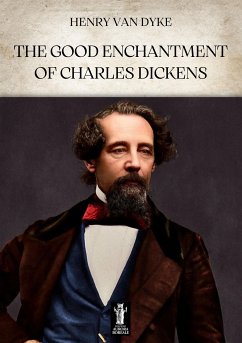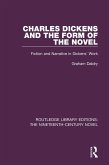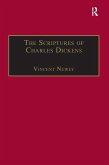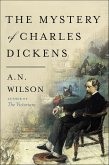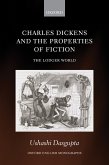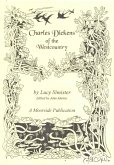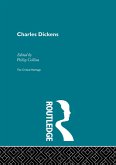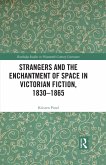Henry Jackson Van Dyke (1852-1933) was an American writer, poet, educator, diplomat, and Presbyterian clergyman. Among his popular writings are the two Christmas stories, The Other Wise Man (1896) and The First Christmas Tree (1897). Various religious themes of his work are also expressed in his poetry, hymns and the essays collected in Little Rivers (1895) and Fisherman's Luck (1899). He wrote the lyrics to the popular hymn Joyful, Joyful We Adore Thee (1907), sung to the tune of Beethoven's Ode to Joy. He compiled several short stories in The Blue Flower (1902), named after the key symbol of Romanticism introduced first by Novalis. He also contributed a chapter to the collaborative novel, The Whole Family (1908). The short Van Dyke's essay The Good Enchantment of Charles Dickens was published in 1912 on the Scribner's Magazine. It is a writing in which Van Dyke manages to capture all the spirituality and enchantment that the great British writer Charles Dickens was able to convey in his works. «Ah, master of the good enchantment, you have given us hours of ease and joy, and we thank you for them. But there is a greater gift than that. You have made us more willing to go cheerfully and comradely along the strange, crowded, winding way of human life, because you have deepened our faith that there is something of the divine on earth, and something of the human in heaven».
Dieser Download kann aus rechtlichen Gründen nur mit Rechnungsadresse in A, B, BG, CY, CZ, D, DK, EW, E, FIN, F, GR, HR, H, IRL, I, LT, L, LR, M, NL, PL, P, R, S, SLO, SK ausgeliefert werden.

